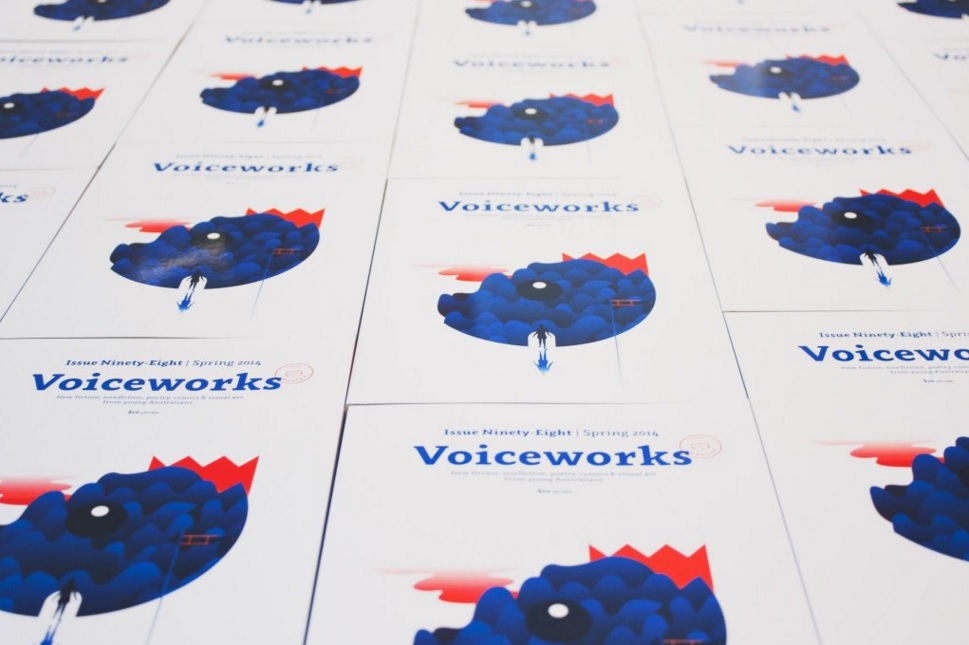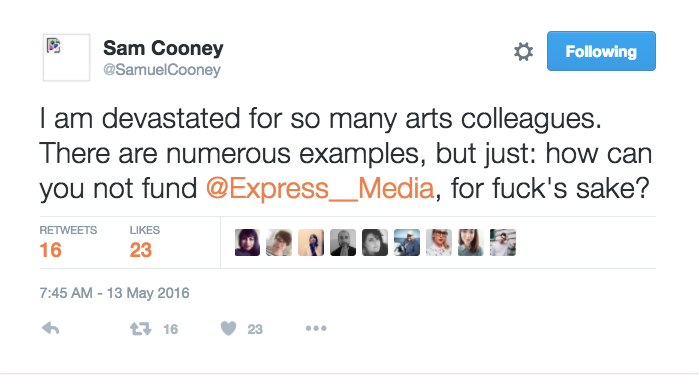This is a word from our Editor on something of vital importance to the literary community.
My name is Liam Pieper. I’m the Content Director of Writers Bloc. I’m also a prize-winning author and novelist whose work is available in all good book stores in Australia. And in translation in Italian, Czech, and Russian. Trust me, don’t listen to what the critics might say – I’m kind of a big deal.
You can already tell I’m quite boastful and self-aggrandising. With that comes a tendency to self-mythologise, but honestly, I owe much of my success to one moment, really, one institution.

In the summer of 2002 I was staring down the barrel of some gaol time. It’s a long story, which I won’t bore you with. The rise of intersectional enlightenment means the beige sort of squalor and woe I came from is no longer fashionable, and besides, the story has been ably recounted in my critically acclaimed memoir.
I’d fallen foul of the law the summer I'd graduated high-school, which is a nervous, formative kind of time for any child, and with the prison thing peeking over the horizon, I didn't hold a lot of hope for the future.
Two things happened to change that. The first was that through a series of wacky misadventures, I managed to dodge the intense incarceration I probably deserved. The second was that I wrote down the anxiety and angst about my pending doom into a short story, and sent it to Voiceworks magazine. And they published it. And paid me for it. Boom.
I still remember unwrapping the magazine and running my fingers over my first ever by-line and the feeling that it stirred in me, one which I'd never really gotten from teachers, or friends, or authority figures—that maybe I was good at something, and I decided that maybe I could be a writer.
Back then, Voiceworks was one of the few creative outlets available to young writers, and young Australians with authorly ambition flocked there. It was, then as now, the nebulous cultural superstructure that a tentative but bright firmament spun. A community.
You don’t have to look far to find a list of Voiceworks alumni who have achieved many and (even possibly) better things than your humble narrator.
Internationally bestselling author Hannah Kent and Christos Tsiolkas were there. Ben Law. Anna Krien. Influential editors, including Bloc favourite Elizabeth Flux cut their teeth on it. Critics and academics who haunt the pages of The New Yorker and the Ivy-League colleges of the United States started there too.
Earlier this year, Express Media was one of the arts organisations that lost their multi-year operational funding as a result of cuts to the Australia Council for the Arts, and the continued existence of the magazine is, for the first time in decades, uncertain.
This tweet from Lifted Brow Publisher and Voiceworks alumnus Sam Cooney sums it up.

I will presume to speak for many when I say that the cessation of Voiceworks funding baffled us.
We couldn’t imagine the world of Australian literature without Voiceworks, because the literary world we’ve made would not exist with Voiceworks.
It is as integral to a young artist’s development as low self-esteem and a mortifying goth phase.
Voiceworks is currently seeking subscribers and I’m asking you, as a close personal friend, to consider subscribing.
I could bang on for thousands of words about what Voiceworks has meant to Australian art in a very real sense, about how a tiny amount of funding has reaped great rewards in the culture industry. But that would be beside the point
For every roaring success whose life was in some way shaped by Voiceworks, every name up in lights, there are hundreds of stories that are just as vital, just as important, ticking away in the subtext.
The dramatic origin story I started this piece off is redundant in the face of the sheer good Voiceworks has done, the cumulative weight of dreams being made.
I could point to the guy who had one perfect poem he wanted to share before putting it aside and refocussing on his real career. The young social worker who found her calling through the empathetic practice of reading others’ work. The Indigenous woman who’s ideas of blak literature, and sovereignty were sparked in part by Voiceworks. The thousands of bookish, isolated queer kids across decades who saw something bright in Voiceworks to lean towards.
The plurality of the magazine has always been its strength. The purity of voices who were discovering their talent, and had not yet learned to be embarrassed by it—a babel of ideas and expression.
In my day, Voiceworks was a place for disparate weirdos to meet. It was important because the online infrastructure of today didn’t exist. There were few other options for the people, like me, for whom Voiceworks was vital. It remains just as vital today. We live in an era of ever shrinking boundaries, and an increasingly hostile and polarised online world. There’s something intrinsic to this magazine that transcends that.
It’s still a place for disparate weirdos to meet, but importantly, to meet weirdos of a different stripe. A way escape to the echo chamber of their own ideas—to share and to learn.
It’s important.
So much so that I’m spending a portion of my vast fortune subscribing. Please consider doing the same.
It’s a tax write-off after all, so your motivations don’t even need to be sound.
If you are an emerging or aspiring writer, it’s the best $60 you’ll ever spend. If someone in your life wants to write, is struggling to find their voice – subscribe for them. It’s the best possible support you can offer.
Do it.
